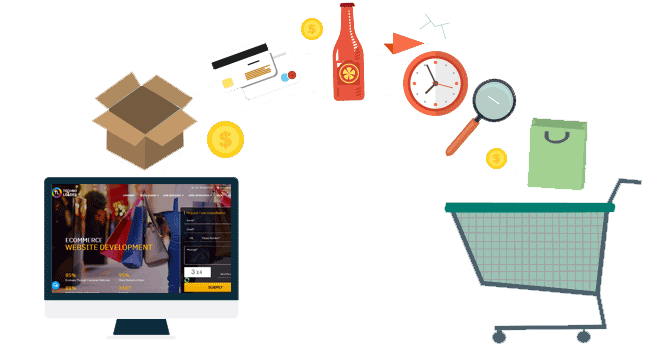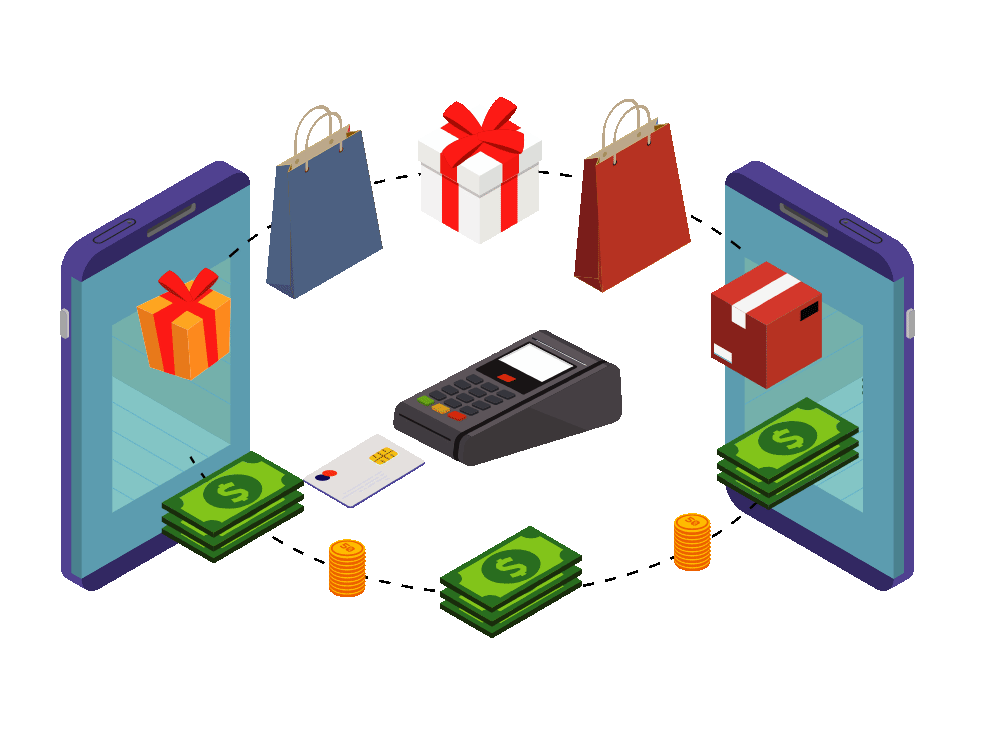E-Commerce
Development & Maintenance
-
Customers can buy your products and services online from the comfort of their homes or on the go
-
Extend their reach beyond physical stores and target customers from anywhere
-
Lower overhead costs, it eliminates the need for traditional brick-and-mortar stores, which reduces inventory and rent costs
-
Increased efficiency, processes that were previously manual will be more efficient and productive
-
Gather customer data and provide personalized recommendations and promotions
-
24/7 availability, which can lead to increased sales and revenue
-
Competitive edge, to compete with larger corporations by leveraging technology and online platforms




Are you looking to start a business that relies solely on the newest and most trending products? Or, do you intend to stay in business for years to come by selling an evergreen product?

Is your business vision to sell products to other businesses, or do you want to sell directly to consumers? These are questions you’ll need to answer during this phase.
Set-up on Platforms like Amazon, Flipkart, Meesho etc.
Sell anything from spices to shoes. Business to customers sell your products and services under one umbrella, such as Amazon, Flipkart, and Meesho.
Choosing product niche
E-commerce is incredibly competitive and is getting harder to break into every day without the right approach. The key to build a successful e-commerce business is to choose a product niche that you can compete within that will also meet your business goals.
Choosing a product niche that you’re already an expert in can give you a great advantage, making it easier for you to understand your audience and establish yourself as an authority in the industry. We help you in choosing right niche for your business. What do you need before starting e-commerce :-
-
Licenses and permits: Your legal documentation, such as licenses and permits, will depend on your business entity type, your state/location, and the products you sell.
-
Product inventory: Inventory might be your biggest and most strategic expense, since you’ll want to have enough to sell but don’t want to waste money on items that won’t sell. You may also need warehouse space and equipment.
-
Shipping: Shipping costs will vary depending on your products, sales, shipping services, speeds, and methods, and whether it is an add-on to your e-commerce platform. You may choose to outsource the entire shipping process if you want to focus on the products and other business operations.
-
Employees: Depending on how big your company is and how fast it grows, you may be running the show for the first few months or even years. Some experience rapid growth and need to hire employees shortly after launching the business, while others remain solopreneurs.
Maintenance
The journey to creating a successful e-commerce business requires motivation, strategy, passion, and a stroke of luck. Starting a business can feel similar to the birth of a child—hard work, but extraordinarily rewarding. Here are some tips when you’re just starting out:
-
Start small. You don’t have to invest in hundreds of products at first. If you’re a craftsperson, create an Instagram account and simple branding to gauge interest. If you’re sourcing products, give yourself a timeline to procure items, create a simple website, and soft-launch with targeted Google or Facebook ads. Then, build your business from there.
-
Keep up with trends. Sustainability is important to consider, as it is one of the biggest trends in e-commerce in 2023, along with delivery services, understanding cryptocurrency, and D2C (direct-to-consumer) sale. For example, it is probably a better idea to start a subscription service for organic veggies or vegan meals, rather than a fast-fashion business.
-
Experiment with marketing. People won’t know about your business unless you promote it. Thankfully, there are many ways to conduct A/B testing on platforms like Google Ads with fewer dollars before launching a major campaign.
-
Take advantage of partnerships and multi-channel strategies. Even though D2C sales are trending, your brand awareness and sales can benefit from featuring your products on channels such as large online retailers like Amazon and Etsy. Social media partnerships, including influencer and affiliate marketing, and public relations (features in select publications) can also help you get noticed and gain traction.
Generally, there are fewer costs associated with e-commerce than brick and mortar. With rent prices and inflation escalating, and a behavioral shift in the way consumers shop, e-commerce might just deliver a higher return on investment (ROI). The initial start-up can cost some amount. Going online has many attractive benefits and a bright future for anyone interested in starting a business.